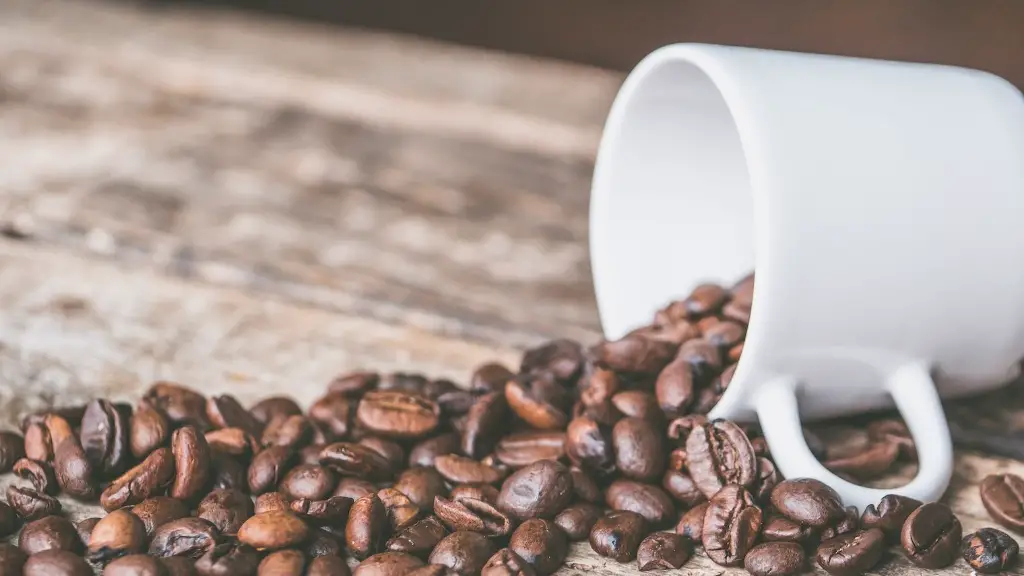Can I Drink Coffee if I Have Kidney Stones?
Having kidney stones can be a debilitating and painful experience. Many people are confused about whether or not they can drink coffee if they have kidney stones. Unfortunately, the answer is not straightforward, as it can depend on the type of kidney stone and your overall health. Here, we provide background information on the risks and benefits of coffee drinking for those who have kidney stones. We include perspectives from experts and discuss the different types of kidney stones. We also provide our own insights and analysis about the potential risks and rewards of coffee drinking.
It is known that people who suffer from kidney stones may be more prone to the formation of new stones than those who do not experience this condition. One of the main factors to consider when deciding whether or not to drink coffee is how much fluid the person is drinking on a daily basis. Drinking plenty of fluids throughout the day plays a major role in the prevention of kidney stones and can help keep them from growing larger.
Recent studies have indicated that while some caffeine can be beneficial in small amounts, drinking too much caffeine can increase the chances of getting kidney stones. This is because caffeine has an acidic effect on the body and increases urine acidity. The increase in urine acidity can increase the risk of kidney stone formation and should be avoided in individuals with kidney stones.
Caffeine Effects
It is important to note that caffeine can have positive health benefits in small amounts. Studies have found that it can improve physical and mental performance, enhance cognitive function, and reduce the risk of some diseases such as diabetes, stroke and Alzheimer’s. The beneficial effects of caffeine have led some experts to suggest that it might be wise to limit coffee consumption to two cups of coffee a day, as long as they are accompanied by sufficient amounts of other fluids.
However, people who already have kidney stones should be cautious with their caffeine consumption. Drinking too much coffee in the presence of kidney stones can worsen the condition, as it can lead to an increase in calcium and pH levels in the urine. This can in turn increase the risk for the formation of new kidney stones or the enlargement of existing ones.
It is also important to be aware that the negative effects of caffeine can vary from person to person. Those who are more prone to getting kidney stones in the first place should definitely limit their caffeine consumption. Women are particularly more at risk of developing kidney stones if they drink high amounts of caffeine than men, as they are more sensitive to the effects of caffeine.
Type of Kidney Stones & Coffee
It is important to note that the effects of coffee in relation to kidney stones can differ, depending on the type of stone. Oxalate is one of the most common types of kidney stones and occurs when calcium combines with oxalate, a naturally occurring compound found in some foods, such as nuts, strawberries, and spinach. Some studies have suggested that individuals with an oxalate stone might actually benefit from drinking coffee, as it can reduce the amount of oxalate that is passed through the urine. However, it is important to bear in mind that too much coffee can also increase the acidity of urine, which can be problematic for those with preexisting kidney stones.
In contrast, those with calcium stones or struvite stones, which occur when there is an excess of magnesium and ammonium in the urine, should not drink coffee as it can increase calcium and pH levels in the urine. Therefore, it is important to be aware of the type of kidney stones present before making any decisions about coffee drinking.
Coffee Alternatives
There are alternatives to drinking coffee that people with kidney stones can choose to consume if they feel the need to intake caffeine. Teas such as green tea, black tea, white tea, and oolong tea are all among the healthiest options. This is because they contain lower levels of caffeine than coffee and their effects on the body are often less severe than coffee. For those who must have coffee, other healthier choices include soluble or instant coffee, as well as decaffeinated coffee. These are both better choices for those with kidney stones, as they contain lower levels of caffeine.
It is important to remember that coffee and other caffeinated beverages should be consumed in moderation, as intake in excessive amounts can cause health issues, including kidney stones. So, while coffee can be a nice pick-me-up, it should be consumed in moderation if you want to stay healthy and avoid forming kidney stones.
Coffee and Hydration
One of the main risks associated with drinking coffee in individuals with kidney stones is dehydration. It is known that coffee has a diuretic effect and can cause dehydration in those who drink too much of it. Dehydration can lead to a build-up of toxins in the body, which can then increase the risk of kidney stones. Therefore, it is essential to make sure that you are drinking enough water throughout the day if you are drinking coffee, as this can help prevent kidney stones from forming or enlarging.
Many experts recommend that people with kidney stones should drink plenty of fluids throughout the day in accordance with their physician’s advice. This doesn’t just mean drinking water, but also other healthy fluids such as unsweetened juices, fruit smoothies, herbal teas, and soup. Drinking these types of fluids can help reduce the risk of kidney stones, while also providing the body with the hydration it needs.
Coffee and Nutrition
In addition to avoiding dehydration, it is also important to make sure that your diet is filled with the right kind of nutrition. Eating a balanced diet high in fresh fruits, vegetables, whole grains, and lean proteins can help prevent and reduce the risk of kidney stones. It is also important to make sure to limit your intake of processed foods, sodium, and sugar. Eating a healthy diet filled with these sorts of nutrients can decrease the chances of getting kidney stones and reduce the pain associated with them.
For those who are prone to kidney stones, making sure to get adequate amounts of calcium and magnesium can be especially beneficial. Foods that are high in calcium and magnesium include leafy greens, legumes, dairy products, nuts, and seeds. Eating plenty of these types of foods can help prevent and reduce the risk of kidney stones.
Exercise and Kidney Stones
Getting adequate amounts of exercise can also help reduce the risk of kidney stones. Regular physical activity helps boost the body’s ability to excrete waste and can help improve the health of the kidneys. It is important to note that exercise does not have to be strenuous. Mild physical activity such as walking, biking, or swimming can help keep your kidneys in good health and reduce the risk of kidney stones.
In addition to regular physical activity, there are other lifestyle changes that can help reduce the risk of kidney stones. One of the most important is not smoking. Studies have shown that smoking increases the risk of kidney stones and can worsen the symptoms in those who already have them. Quitting smoking can help reduce the risk of kidney stones and improve overall kidney health.
Lifestyle Changes and Kidney Stones
We have also noted how vital it is to maintain a healthy diet and hydration status when it comes to making sure that your kidneys stay healthy. Eating a balanced diet and drinking plenty of fluids is essential for those with kidney stones. This includes avoiding salty foods, as these can increase the risk of developing kidney stones. Eating a diet that is focused on fresh produce and lean protein, can provide the body with the vital nutrients it needs.
In addition, it is important to cut back on processed foods and drinks that are high in sugar, as these can increase the risk of developing kidney stones. Reducing the amount of animal-based protein can also help reduce the risk of kidney stones, as this can make the urine more alkaline and reduce the amount of calcium in the urine.
Prevention & Management
It is important to remember that diet, exercise, and lifestyle modifications are all necessary in order to prevent and manage kidney stones. Ultimately, it is best to check with your doctor or dietician before making changes to the way you eat or how much caffeine you drink, as they can provide you with personalized advice that is tailored to your specific health needs.
In conclusion, drinking coffee can be beneficial in moderation for those who have kidney stones. However, it is important to remember that too much caffeine can increase the risk of kidney stones, as it can increase acidity levels in the urine. Therefore, it is important to limit caffeine intake, or consider other sources of caffeine such as green tea or decaffeinated coffee. Eating a balanced diet rich in essential nutrients and drinking plenty of fluids are essential for those with kidney stones. Finally, regular physical activity and lifestyle modifications can also help reduce the risk of kidney stones.





